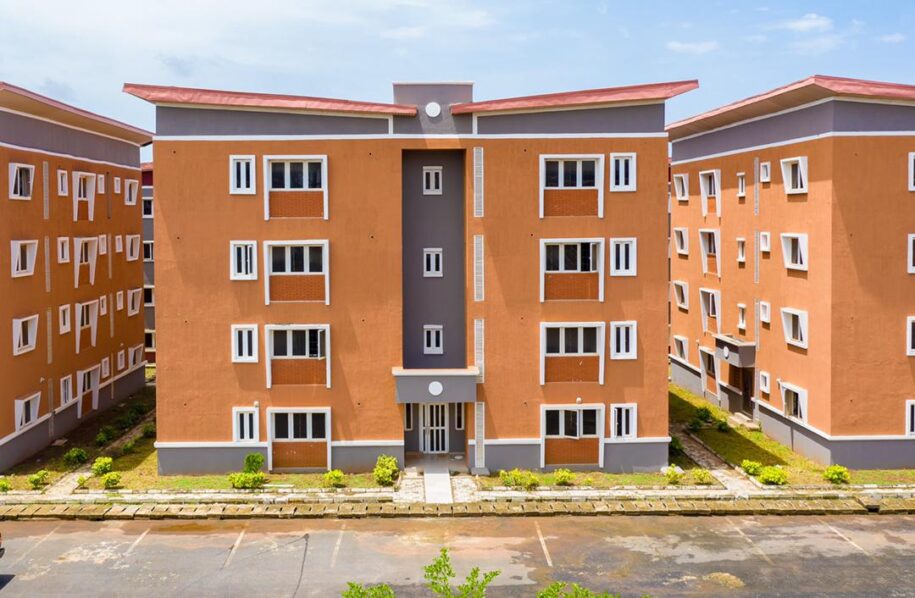Renting an apartment in Lagos, Nigeria, can be an intricate process due to various factors such as demand, location, and bureaucratic procedures.
Here are a few tips to guide you through the complexities of renting an apartment in Lagos, covering everything from preparation to signing the lease agreement.
Determine Your Budget and Preferences:
Before starting your apartment hunt, it’s crucial to establish your budget and preferences. Determine how much you can afford to spend on rent, considering other expenses such as utilities, transportation, and groceries. Also, outline your preferences regarding the apartment size, location, amenities, and proximity to essential facilities like schools, hospitals, and workplaces.
Research Neighborhoods:
Lagos is a sprawling metropolis with diverse neighborhoods, each offering a unique ambiance and lifestyle. Research various neighborhoods to find the one that aligns with your preferences and budget. Consider factors such as safety, proximity to amenities, transportation accessibility, and the overall atmosphere.
Start Your Search:
Once you’ve identified your preferred neighborhoods, begin your apartment search. Utilize online platforms such as property listing websites, real estate apps, and social media groups dedicated to real estate in Lagos. Additionally, consider working with reputable real estate agents who can assist you in finding suitable properties based on your requirements.
Schedule Property Viewings:
Once you’ve shortlisted potential properties, schedule viewings to inspect them in person. During the viewing, pay attention to important aspects such as the condition of the apartment, amenities, security features, and any signs of damage or maintenance issues. Take note of the neighborhood environment and inquire about utilities, maintenance responsibilities, and lease terms.
Understand the Rental Market:
Lagos’ rental market can be competitive, with high demand for desirable properties. Understand the prevailing rental trends, including average rental prices in your preferred neighborhoods, common lease terms, and negotiation strategies. Be prepared to act quickly when you find a suitable apartment, as good properties tend to get rented out fast.
Prepare Necessary Documentation:
Before renting an apartment, you’ll need to provide certain documentation to the landlord or property manager. This typically includes proof of identity (such as a passport or driver’s license), proof of income or employment, references from previous landlords, and sometimes a security deposit. Ensure that all your documents are in order to streamline the rental process.
Negotiate Lease Terms:
Once you’ve found a suitable apartment, negotiate the lease terms with the landlord or property manager. Discuss aspects such as the duration of the lease, rent amount, security deposit, maintenance responsibilities, and any additional fees or clauses. It’s essential to clarify any ambiguities and ensure that the lease agreement aligns with your needs and preferences.
Review the Lease Agreement:
Before signing the lease agreement, carefully review its terms and conditions. Pay attention to clauses related to rent escalation, maintenance procedures, security deposit refund policy, early termination provisions, and any restrictions or rules imposed by the landlord or property management company. Seek clarification on any unclear or ambiguous clauses before proceeding.
Make Necessary Payments:
Once you’re satisfied with the lease agreement terms, make the necessary payments as per the landlord’s instructions. This typically includes paying the first month’s rent and the security deposit. Ensure that you obtain receipts or confirmation of payment for your records.
Move-In Inspection:
Before moving into the apartment, conduct a thorough inspection alongside the landlord or property manager. Document any existing damages or issues in writing and take photographs as evidence. This will help avoid disputes over the security deposit when you eventually move out.
Settle into Your New Home:
Once you’ve completed the formalities and moved into your new apartment, take the time to settle in and make it feel like home. Familiarize yourself with the neighborhood, explore nearby amenities, and ensure that you adhere to any rules or regulations outlined in the lease agreement.
Maintain Communication with the Landlord:
Throughout your tenancy, maintain open communication with the landlord or property manager. Report any maintenance issues promptly and adhere to the terms of the lease agreement. Building a positive relationship with the landlord can be beneficial and may facilitate a smooth rental experience.

Be First to Comment